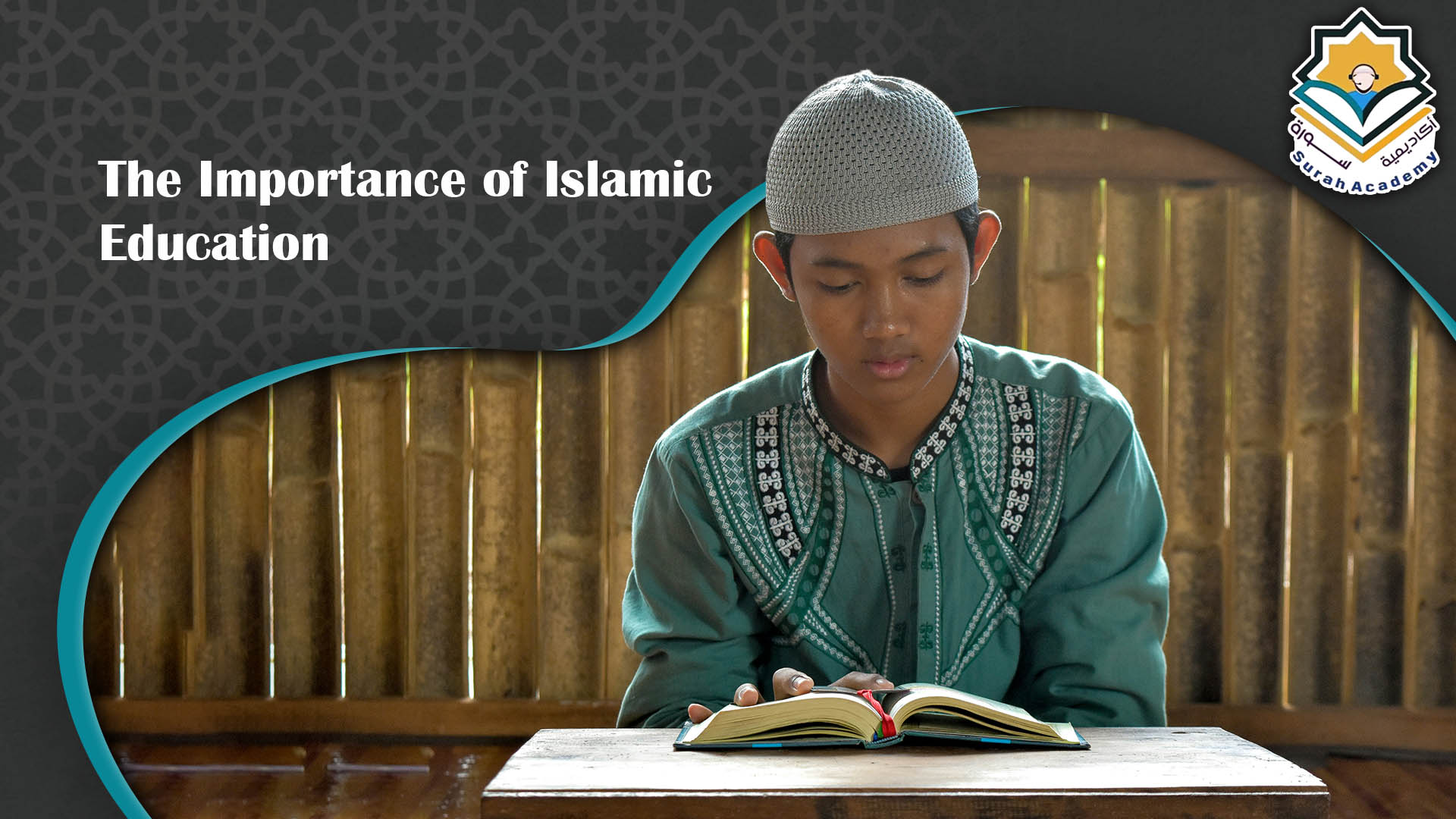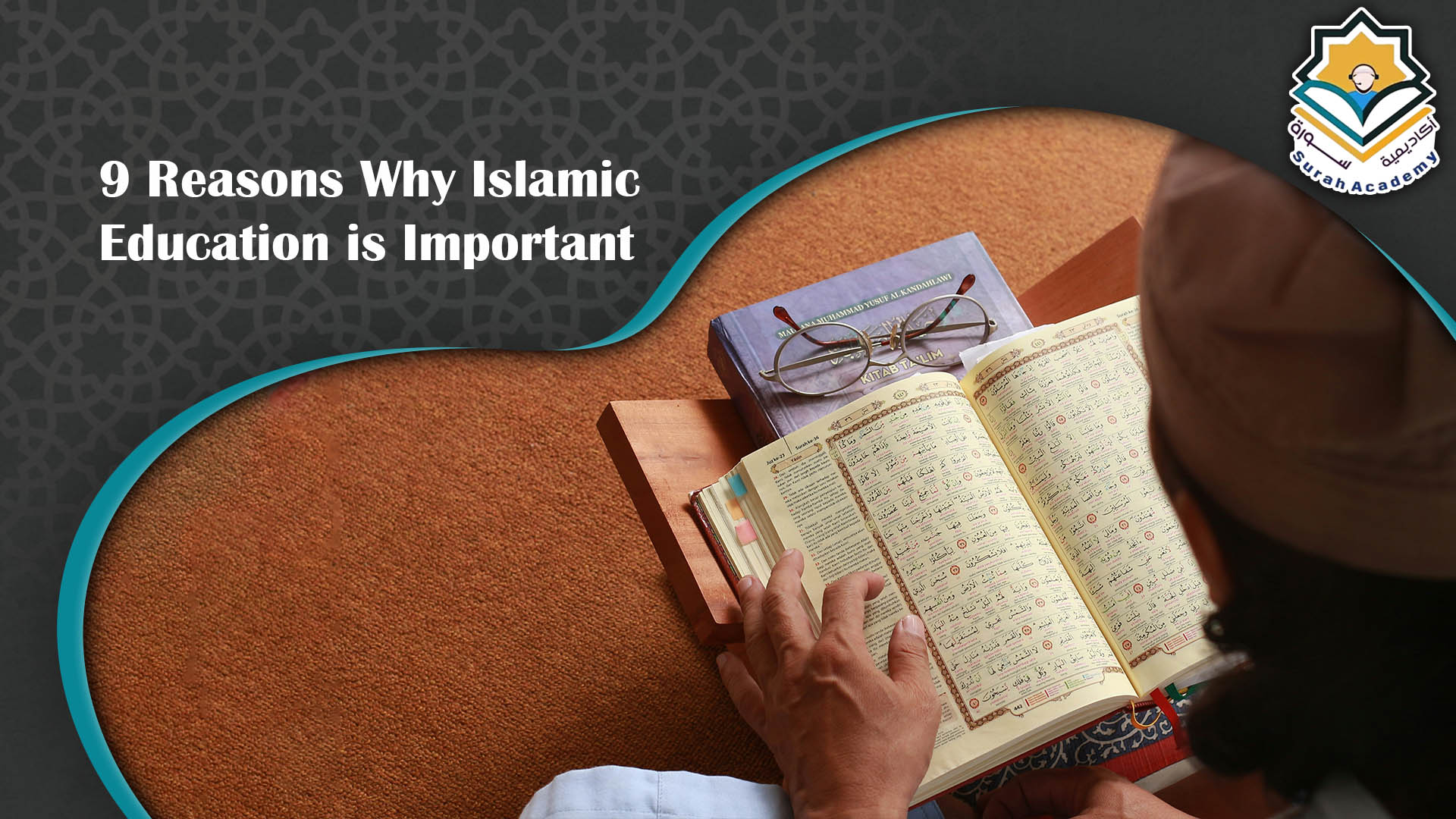Islamic Education in U.K offered by institutions like Surah Academy provides a unique approach that combines academic excellence with spiritual and moral development.
Rooted in the teachings of the Quran and Sunnah, it nurtures well-rounded individuals who uphold strong values while contributing positively to society.
Through its programs, Islamic education continues to preserve knowledge, inspire growth, and guide communities toward a purposeful and balanced life.
The Importance of Islamic Education in U.K

Islamic Education in U.K is more than just learning religious scriptures; it is a holistic approach that nurtures purpose, moral responsibility, and a strong spiritual identity. In Islam, the pursuit of knowledge is considered an act of worship, emphasized repeatedly in the Qur’an and Hadith. This form of education not only focuses on understanding Islamic teachings but also on cultivating essential character values such as compassion, honesty, and justice.
In the UK, where Muslims form a vital part of society, Islamic Education in U.K plays a key role in connecting the younger generation to their faith and cultural roots. Amid growing secular influences and the challenges of integration, Islamic schools and madrasas provide safe spaces for Muslim children to strengthen their identity while gaining quality academic instruction. By combining spiritual guidance with academic excellence, Islamic Education in U.K equips students with the tools to succeed in their careers and contribute meaningfully to society.
Features of Our Online Quran Tutor Services
At Surah Academy, we strive to deliver a high-quality and well-organized Quran learning experience through our team of expert online tutors. Our program offers live and interactive sessions, enabling students to connect with their teachers in real time. Each learner benefits from a personalized study plan designed to meet their specific level—whether beginner, intermediate, or advanced.
ensuring a smooth, effective, and deeply enriching journey in Quran education.

Empowering the Future: Islamic Education in U.K
Islamic Education in U.K has always been a vital foundation for both individual and community growth in Muslim societies. Its core principle lies in nurturing the mind and soul together, fostering ethical values, spiritual development, and academic excellence.
In the UK’s diverse and multicultural setting, Islamic Education in U.K plays a key role in preparing the next generation of Muslims to face modern challenges while remaining firmly rooted in their faith.
Through madrasas, Islamic schools, and specialized programs, the Muslim community continues to provide young people with the knowledge and guidance needed to thrive in today’s world.
Islamic Schools: Balancing Faith and Academic Excellence
In the UK, full-time religious schools are increasingly chosen by Muslim families for their ability to blend secular subjects with Islamic teaching. Through well-structured curricula, these schools provide both strong academic foundations and meaningful religious upbringing. Students not only excel in subjects like science and English but also gain valuable lessons in ethics, charity, and community service.
The success of Islamic schools depends on balancing the national curriculum with Islamic studies. Many have achieved this harmony, ensuring that students graduate with academic excellence and a strong spiritual identity.
Empowering the Future: The Impact of Islamic Education in U.K
The influence of Islamic Education in U.K on shaping future generations is profound. By offering young Muslims a solid grounding in both religious knowledge and academic achievement, Islamic schools and madrasas prepare them to thrive in a diverse and rapidly evolving world. These institutions not only preserve Islamic identity but also encourage civic responsibility and a sense of global citizenship.
The core values promoted through Islamic education—such as compassion, honesty, and justice—are universally relevant, enabling students to make meaningful contributions to both the Muslim community and wider society. As approaches to Islamic Education in U.K continue to develop, they remain essential in raising confident, knowledgeable, and morally grounded individuals ready to lead and serve.
In conclusion, Islamic Education in U.K is nurturing the intellectual, spiritual, and ethical growth of young Muslims. Whether through traditional madrasas, Islamic schools, or modern digital platforms, it provides the tools needed to succeed in faith, academics, and contemporary life.
learn also: how to perform umrah step by step
The Role of Madrasas in the U.K
Madrasas have long been central to Islamic education, especially in Muslim-majority societies. In the UK, they play a similar role by offering supplementary classes outside regular school hours. Commonly attached to mosques, these institutions teach Qur’anic studies, Arabic, Islamic history, and Fiqh, helping young Muslims strengthen both their faith and knowledge.
For many families, the madrasa is more than a place of learning—it is a community hub. Children gain religious knowledge while building strong bonds with peers and mentors, fostering a sense of identity and belonging in a largely non-Muslim society. Parents also value madrasas for providing guidance that reflects their cultural and religious values, often filling gaps left by mainstream schools.
Despite their importance, madrasas face challenges. Traditional rote memorization and strict discipline, once standard, may not fully meet the needs of today’s learners. There is a growing push for modernizing teaching methods and curricula by adopting interactive lessons, digital tools, and project-based learning. Many madrasas in the UK are now embracing these innovations, ensuring that Islamic education remains both authentic and relevant while preparing students to thrive in contemporary society.
The Necessity of Islamic Education in U.K in Modern Curricula
Islamic Education in U.K plays a vital role in shaping well-rounded individuals who are grounded in faith, morals, and knowledge. By combining religious teachings with modern subjects, it prepares students to navigate the challenges of today’s world while staying connected to their spiritual and cultural heritage.
Cultivating Holistic Personalities
Islamic education seeks to nurture well-rounded individuals by emphasizing spiritual, intellectual, and moral development. By integrating Islamic teachings with contemporary subjects, students gain a balanced education that equips them for both worldly achievements and spiritual growth.
Ensuring Continuity of Islamic Values
Embedding Islamic Education in U.K within modern curricula helps safeguard and transmit core values to future generations. This connection ensures that students remain grounded in their faith and cultural heritage. Given the high regard Islam places on knowledge and learning, including these principles in today’s educational systems is essential.
Adapting to Contemporary Needs
Modernizing Islamic Education in U.K requires updating teaching approaches and curricula to align with present-day requirements. This includes leveraging digital tools, promoting critical thinking, and adopting innovative learning methods. Such adaptations ensure that Islamic education remains relevant, effective, and capable of addressing the challenges of the contemporary world.
Islamic Education in U.K in the Digital Age
With the rapid advancement of technology, the landscape of education is undergoing a major transformation, and Islamic education in the UK is no exception. Digital platforms and online resources have become valuable tools that complement traditional methods of learning. From Qur’an applications and online Islamic courses to virtual madrasas, technology is expanding access to Islamic education for a much broader audience.
This shift holds particular significance for Muslim families who may not have easy access to a local madrasa or Islamic school. Through online learning, students are now able to study Qur’an recitation, Hadith, and other Islamic subjects directly from home. Furthermore, digital platforms provide flexible schedules, enabling working parents to better support their children’s religious education.
The COVID-19 pandemic accelerated the move toward online learning, and even after restrictions were lifted, many Islamic schools and madrasas in the UK have continued to embrace digital tools. This blended model of education is expected to remain, offering students a more flexible and personalized approach to learning while strengthening their connection to faith and knowledge.
9 Reasons Why Islamic Education in U.K is Important

Education is fundamental in shaping a person’s character and overall personality. Islamic education provides a balanced approach that combines academic knowledge with moral and spiritual growth. Here are nine key reasons why it is essential:
1. Strong Foundation in Faith
Sending children to Islamic institutes helps establish a solid foundation in Islamic beliefs. They learn essential concepts such as Tawheed, the Seerah of the Prophet ﷺ, and Quranic Arabic. This foundation supports moral and spiritual growth throughout their life.
2. Correct Knowledge of Islam
Parents may not always have complete knowledge to teach their children accurately. Islamic schools ensure students receive authentic teachings, helping them understand Islam properly. This guidance fosters lifelong adherence to faith and values.
3. Protection from Un-Islamic Practices
Conventional schools often expose children to celebrations and practices that conflict with Islam, such as birthdays or Halloween. Islamic education protects students from such influences. It ensures their daily experiences align with Islamic values.
4. Gender-Appropriate Learning Environment
Islamic schools maintain separate classes for boys and girls, following Islamic guidelines. This encourages proper conduct and reduces inappropriate interactions. Children learn in a respectful and faith-aligned environment.
5. Promotion of Modesty
Dress codes in islamic classes encourage modesty and adherence to Islamic principles. Girls learn the importance of hijab from a young age. This helps instill lifelong respect for modesty and self-discipline.
6. Correct Aqeedah
Islamic institutes follow authentic teachings of Islam, ensuring children learn the true aqeedah. This prevents confusion from sectarian differences. Students develop a strong understanding of correct Islamic beliefs.
7. Positive Religious Habits
Children in Islamic schools develop habits such as praying Salah on time and reciting the Quran regularly. These practices become part of their daily routine naturally. It nurtures a strong spiritual connection from a young age.
8. Balanced Curriculum with Religious Studies
Islamic education integrates Quran recitation, Hifdh, Tajweed, and Arabic into the school curriculum. Students do not need additional classes outside school. This ensures they receive both religious and academic learning simultaneously.
9. Peer Influence and Life Choices
Being surrounded by peers who share similar Islamic values reinforces positive behavior and friendships. Learning every subject from an Islamic perspective equips students to make life choices aligned with faith. They are more likely to pursue halal careers and ethical lifestyles.
In conclusion, Islamic Education in U.K remains a cornerstone for nurturing knowledgeable, morally upright, and spiritually aware individuals.
By combining academic learning with the timeless values of Islam, it equips students to navigate life with wisdom, integrity, and faith. Investing in Islamic education ensures that future generations stay connected to their cultural and religious heritage while contributing positively to society, creating a balanced and purposeful life for themselves and those around them.
Learn more: quran recitation online
